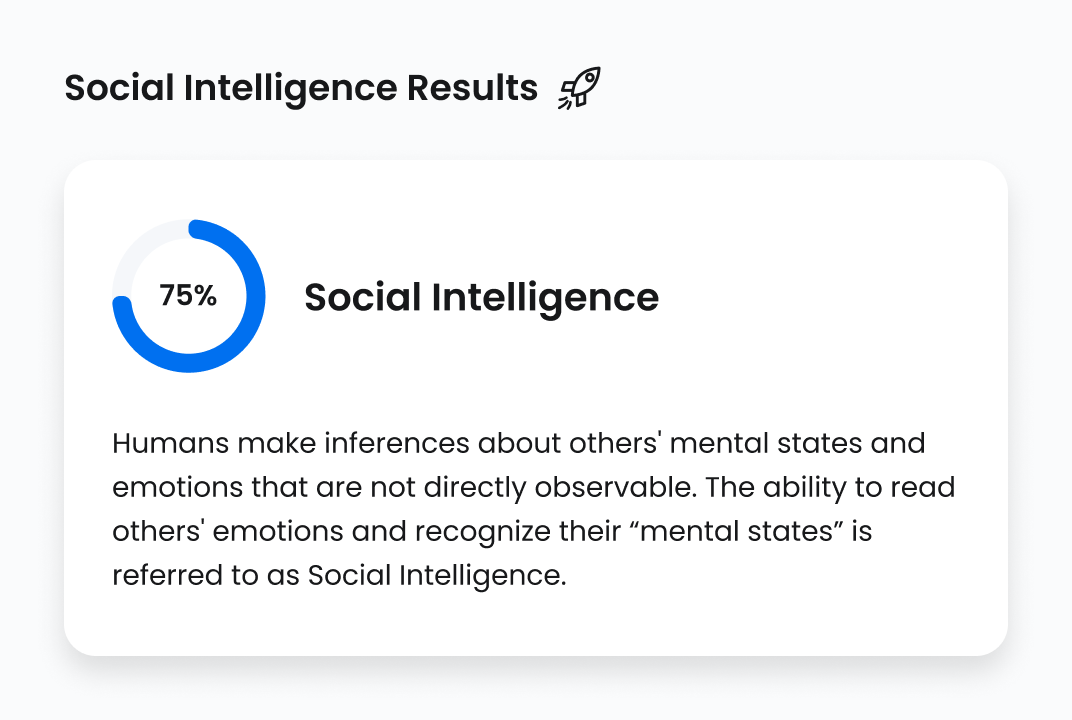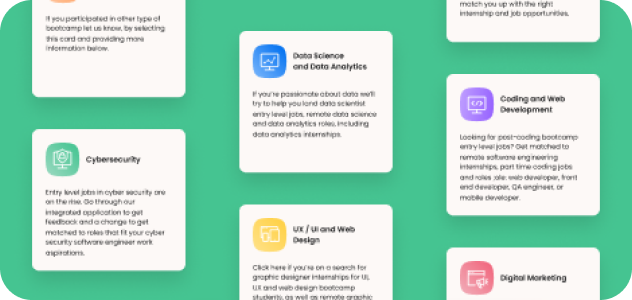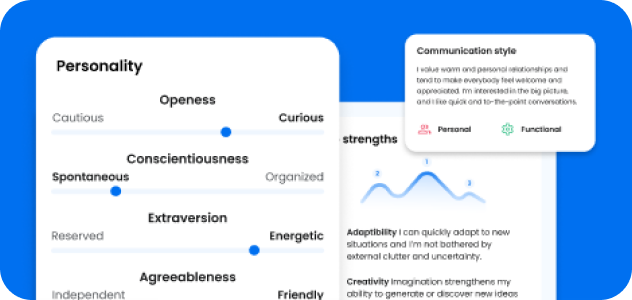Social Intelligence Test

A Human emotions test grounded on Theory of Mind
Benefits
Gyfted’s Free Social Intelligence Test is a social skills test that provides you with insights around your ability to read emotions. You will better understand your ability to make inferences about others' mental states and emotions that are not directly observable after taking this short emotion quiz.
Why is this of value to me?
How you can use this test?
How it works?
you’re at ease, undisturbed
and ready to focus.
you through the process. It’s
easy - just go with your gut
feeling.
you will receive your
feedback immediately
anyone, with just a click of a
button
What's Inside? Get immediate feedback by measuring these traits in you
Social Intelligence Test
Assessment Insights
Scientific and Empirical Foundations
Origin of the social intelligence concept: Thorndike, E. L. (1920). Intelligence and its uses. Harper's Magazine, 140, 227-235. Measurement of social intelligence: Silvera, D. H., Martinussen, M., & Dahl, T. I. (2001). The Tromsø Social Intelligence Scale, a self-report measure of social intelligence. Scandinavian Journal of Psychology, 42(4), 313-319. Social intelligence and interpersonal relationships: Vernon, P. A., Villani, V. C., Schermer, J. A., & Kirilovic, S. (2008). Genetic and environmental correlations between trait emotional intelligence and humor styles. Journal of Individual Differences, 29(2), 96-102. Social intelligence in the workplace: Riggio, R. E., & Reichard, R. J. (2008). The emotional and social intelligences of effective leadership: An emotional and social skill approach. Journal of Managerial Psychology, 23(2), 169-185. Social intelligence and team dynamics: MacCann, C., & Roberts, R. D. (2008). New paradigms for assessing emotional intelligence: Theory and data. Emotion, 8(4), 540-551. Social intelligence and conflict resolution: Morrison, M., & Conway, J. M. (2010). First things first: Competence in the interpersonal domain as a general antecedent to conflict resolution and cooperation. Journal of Applied Social Psychology, 40(6), 1395-1421.


